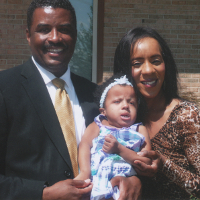Every baby is a miracle. I’ve heard that saying many, many times, but I understand it a lot better now that I’m working in the pro-life movement.
Especially when I read stories about babies like Hannah.
While Hannah was still in the womb, doctors diagnosed her with Trisomy 18, a chromosomal abnormality that causes most babies to die at birth.
Doctors encouraged Hannah’s mother, Bernadette, to abort her. They said Bernadette’s seven other children would suffer while she was confined to a hospital bed with a high risk pregnancy, but she and her husband refused to kill Hannah in the womb.
Instead, they hoped and prayed. Hannah was born, not without problems, but she lived. Hannah spent a remarkable five years with her family before she died.
Her mother said, “Five beautiful years with her. I just want to tell mothers, ‘Don’t do this [abortion].’ I had to fight through it all. I wanted my baby alive and I wanted to carry her. We would have missed out on all of the beauty of life with my daughter.”
So many babies like Hannah are labeled “incompatible with life” and routinely aborted. Abortion advocates wrongly persuade these worried parents that the compassionate thing to do is have an abortion.
As I read Hannah’s story, I thought about what would have happened if she had been aborted. I thought about the parents in similar situations who do abort.
And I realized how abortion takes miracles out of the equation: no miracles for a baby diagnosed with a fatal illness, no hope for a family facing terrifying news about their baby.
Then I look at the pro-life movement, and I see the person-against-the-odds stories that we can’t help but love. I see people refusing to allow even the darkest circumstances overshadow the innate value of every human life.
It may be a simple thought, but I find comfort and joy in realizing that we are a movement of hope and miracles.
—————————-
Note: After writing this column for our newsletter, a reader contacted me with information about perinatal hospice, a program that helps families who learn that their preborn babies will not live for long. It’s a support system that is so very needed, because it helps families treasure the short time they have with their child.
According to Perinatalhospice.org, “Caregivers can provide support during pregnancy, including assisting with birth planning, making medical decisions for the baby, offering support for anticipatory grief, … helping parents create memories … and supporting families as they say goodbye.”
I encourage you to learn more by visiting Perinatalhospice.org.

